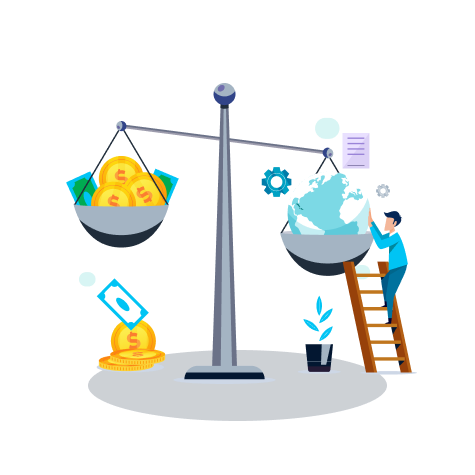Trading instruments
Trading instruments:
4A.Derivatives:
Derivatives are the security contracts where the value of the contact depends on the underlying asset. Majority of the derivatives are leveraged and hence involve high risk and high reward. There are two types of Derivatives: Futures and Options.
-
Futures:
Futures is a contract entered by an individual to buy or sell the asset at a predetermined future date. By entering a buy contract, the investor is expecting the price to rise and vice versa for the sell position.
-
Options:
Options are contracts where a buyer of the option is entitled with the right at the cost of the premium rather than the obligation.The buyer of the option can exercise the right only when the situation is favorable.
● Calls:
Purchasing a call gives a right to the option holder to buy the asset at a given strike price for the asset on or before expiration date. A call is bought when the trader expects the price to move up and sold when the price is expected to fall.
● Puts:
Purchasing a put gives a right to the option holder to sell the asset at a given strike price for the asset on or before expiration date. A put is bought when the trader expects the price to fall and sold when the price is expected to rise.
4B.CFDs (Contracts for differences):
CFDs are contracts that pay the trader the price difference between buying and selling price or vice versa. They are easy to trade and do not have any expiration date like futures.
4C.Margin and Leverage:

Leverage is the facility of providing borrowed capital to give additional buying power in the margin account. In order to utilize the leverage , a fraction of the investment called Margin is deposited in the margin account. The margin requirement of the instrument depends upon the volatility of the instruments, volume traded etc.
Let's say a forex trader wants to buy 100,000 units of EUR/USD at 1.0720 with a leverage ratio of 1:100. In this case, the trader would need to have $1072 ( 1% X 100,000 X 1.0720) in the trading account.
If the trader's losses exceed the account balance, a margin call from their broker will be triggered to deposit more funds or close their positions to prevent further losses. It's important for forex traders translateText("to carefully manage their leverage and margin levels to avoid excessive risk-taking and potential losses.")}}
Got some questions? We're here to help!
Choose your operating system
Join us for the Gateway to Wealth Copy Trading Tutorial

You're being redirected to another page, it may takes upto 3 seconds
